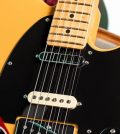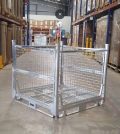6 Gold Prospecting Accessories for Beginners and Beyond
Gold is a mineral that can be found in veins and placer deposits. When lava gets to the surface, it makes a vein, which is also called a gold vein. As the lava cools, it gives off a lot of gases and liquids. Most of these liquids and gases move through cracks in the lava and leave behind minerals as they go. This makes a vein. Some of these veins are miles long! When these veins reach the surface, wind, weather, and water break them up and carry the gold away.
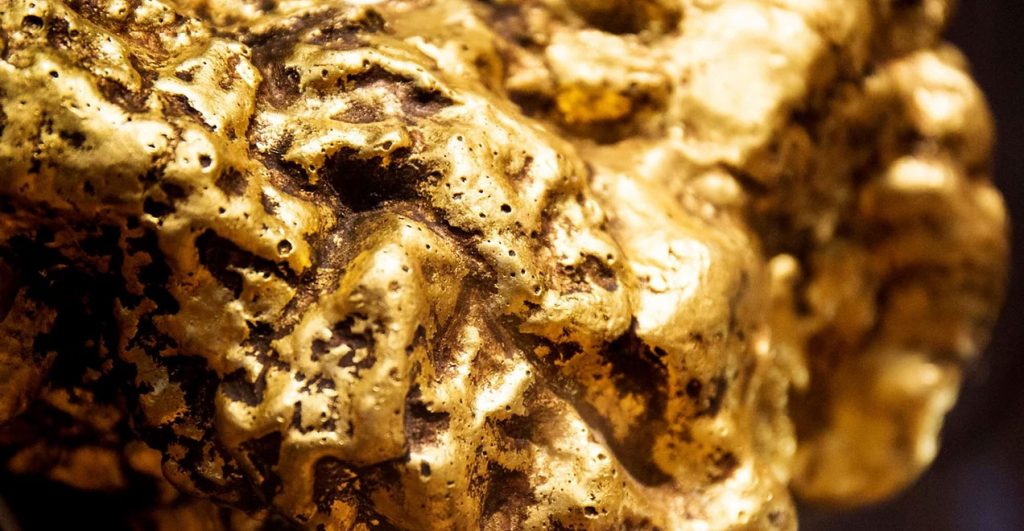
The best thing about looking for gold is that you don’t have to spend much money to start. Sure, you can buy a lot of fancy and expensive gear out there. But gold prospectors who are just starting out do not need to buy all that stuff to get started and find a little gold.
Necessary Tools and Detector Accessories
Good news. The cost of getting started with gold prospecting and getting your own set of tools and essential range of detector accessories won’t cost a fortune. Technically, you could pan for gold with an old frying pan. Is this a good plan? Most likely not. But you can get the right tools for a little money and start right away.
Metal Detector
A metal detector is a piece of equipment that can help you find metal objects on the ground, underground, or even underwater. The unit itself is made up of a control box and a shaft that can be moved to hold a pickup coil that can be of different sizes and shapes.
If the pickup coil gets close to a metal object, the control box will let you know by changing the tone, flashing the light, or moving an indicator needle. Most of the time, the device tells you how far away something is by how high the tone in the earphone is or how high the needle goes.
However, be mindful that for example in Victoria, if you want to fossick with a metal detector you need a current fossicking permit, also called a “miner’s right.” You can take and keep minerals you find on Crown Land, your own land, or private land if you have a miner’s right (where the landowner has given permission).
Gold Pan
When people think of gold prospecting accessories for beginners, the gold pan is probably one of the first things that come to mind. Modern gold pans are made of plastic and are very light. They are also very cheap.
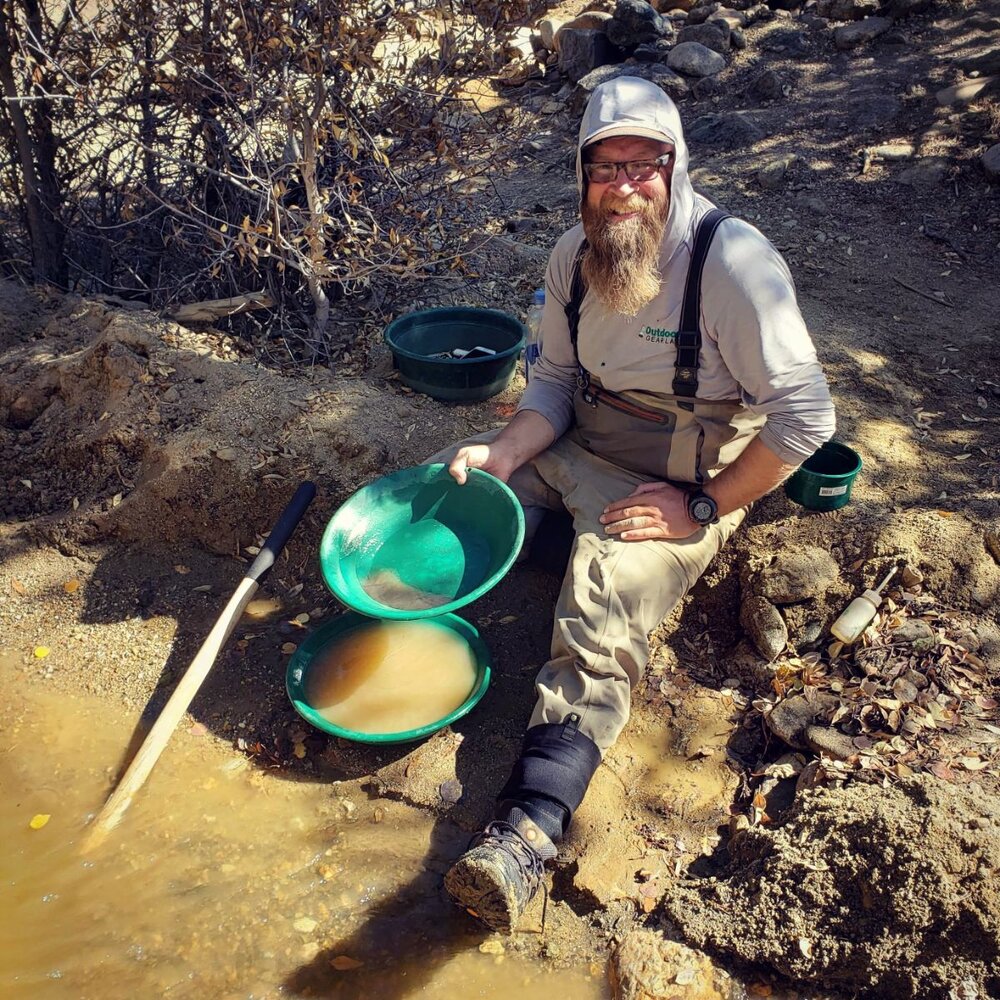
The gold stays in the pan because of the deep riffles or gravity traps. Remember that steel gold pans are much heavier, harder to use, and can rust quickly. Gold pans are a gold prospector’s tool that is easy to carry around.
Shovel and Pick Set
Using shovel/pick detector accessories is the easiest way to move gravel, rocks, and dirt around. They are easy to carry and store because they are light and strong. A must-have for beginners who want to find gold in areas with hard soil and rocks.
In general, you should look for shovels made of stainless steel, as these are the most durable and lightest for carrying around. And make sure to get a good pickaxe with a sharp point. This is critical because a dull pickaxe will be more difficult to use and it won’t get you the results that you need.
Bucket Bucket
A sizable bucket is a great way to carry and keep track of all your gold-hunting tools. It can also be used to move the stuff you want to pan. These buckets are very cheap, and some stores even give them away for free.
You can also get rid of everything except the heavy black sand and take that home. By doing this, you can use your time on the river to pan for gold and your time at home to get all the precious gold out of your black sand concentrate.
Magnet
You can use a magnet to get rid of the magnetic black sand that builds up in your plastic gold pan. Using this tool is also a smart way to clean things up and keep them organised since magnetic black sands tend to cling together.
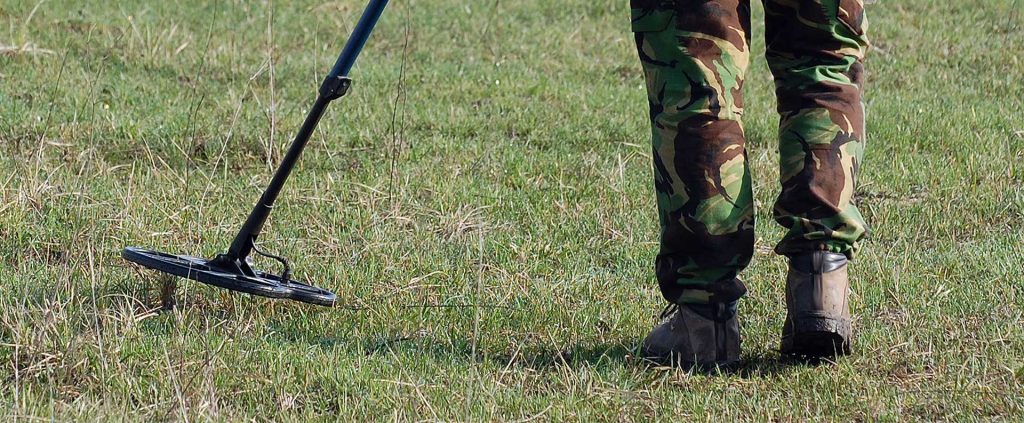
In terms of specs, you need to look for a strong neodymium rare-earth model. This type of magnet is usually very cheap and it’s the strongest type of permanent magnet available. And because it’s so strong, it can pick up fine grains of gold that are otherwise difficult to detect.
Cleanup Kit
Having a sniffer bottle, snuffer bottle, or sucker bottle with you is a great way to get fine gold flakes out of your gold pan. This involves blowing air into the bottle and then suctioning out bits of gold or other material from your pan. You can also use tweezers to pick out larger gold flakes.
You don’t necessarily have to get a full cleanup kit, but it’s certainly something worth considering. It will help you keep your gold-hunting equipment neat and tidy while also making sure that you don’t miss any gold flakes.
Best Places to Look for Gold
Even though you might be able to find gold in your own backyard, it’s probably not the best place to start looking. If you’re new to gold prospecting, the best thing to do is learn as much as you can about where and how gold is made. Quartz crystal formations are the most common and likely place to find gold. The problem is that these gold deposits are too expensive and hard for a beginner gold prospector to get to.
Alluvial deposits are the next best thing to learn about and find when it comes to gold prospecting for newbies. These “placers” are deposits that Mother Nature, in all her wondrous ways, has left for you to find. With these types of deposits, we might find gold in holes or pockets on the surface where the rocks and soil around them have been washed away, having left the heavier gold in the holes or pockets, or natural traps.



